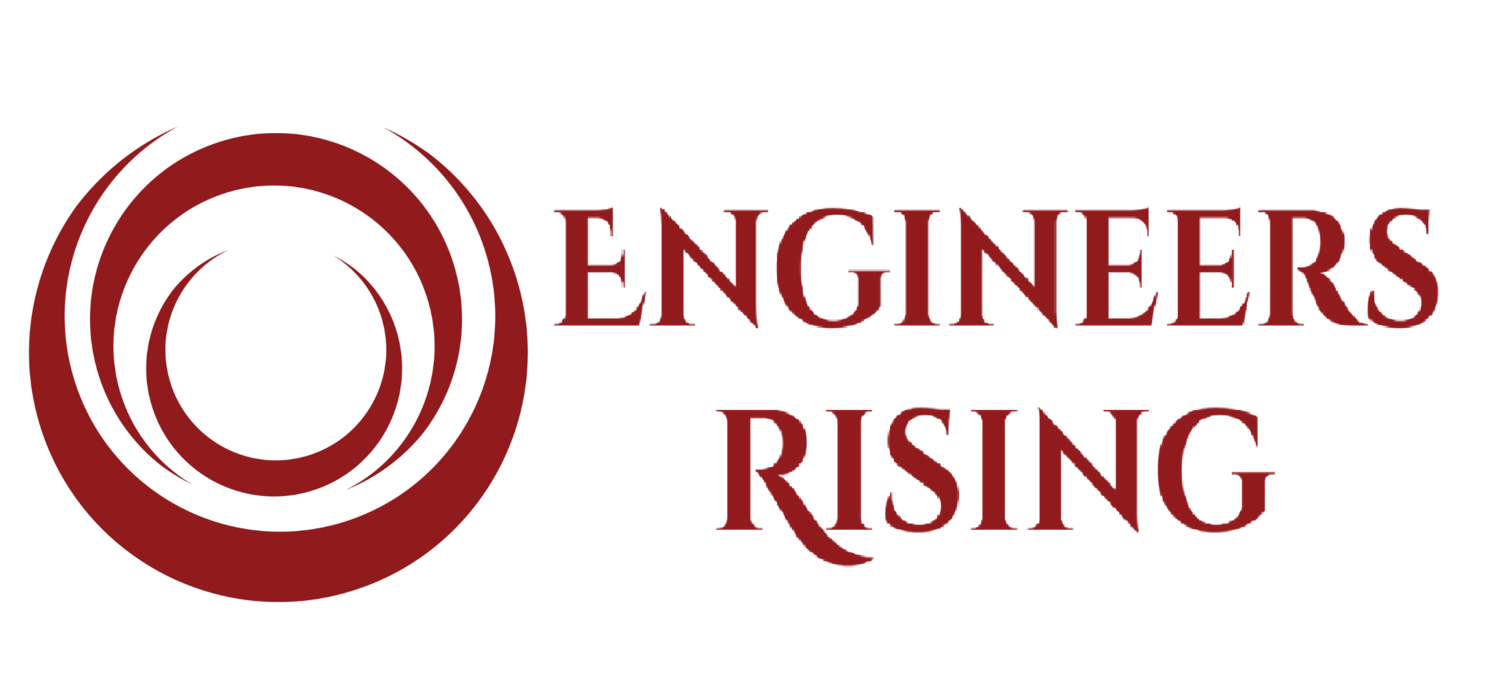This blog is the first in a two-part series discussing ways you can experience more fulfillment at work, without leaving your current job. Click HERE to read part two in the series, which also includes a video and implementation exercise to help you immediately apply the lessons noted here.
About ten years ago, I was assigned a project where we were designing the structural support for a pipe replacement project at a prison. The new pipes, including steam, hot water, and cold water, were to be supported from various existing buildings and required a “pipe bridge” to get over a maintenance access road as they traveled from those buildings to the central plant.
During one of the initial site visits to review the existing conditions, I set off the metal detector as I entered the building. I remember starring at the green prison walls as the prison guard’s wand hovered over my body, looking for whatever metal had set off the metal detector as I had entered the facility. If you are curious as to what piece of clothing I was wearing that set it off, it turned out to be the underwire in my bra. I note this as a public service announcement for any ladies who may need to enter a prison for design purposes in the future.
I remember a guard joking about the last prison riot at this particular facility as the design team was escorted from building to building. Maybe it was my imagination, but I also felt like there were invisible eyes on me. During this visit, I was the only female member of the team completing the existing conditions survey, and this particular prison housed predominately male offenders.
And, although I felt I was generally successful at compartmentalizing the engineering part of my work as separate from a very flawed prison and justice system, it hovered in the back of my mind like that horrible 90’s-era boy-band song that you get stuck in your head.
During this same time frame, I was working on another project. This project was a university classroom building that would be used to teach students and house research facilities. I could see and feel the excitement of the faculty that would be using this building at every design team meeting I attended. This particular project was going to help shape the future of students, and become a state-of-the-art facility for research.
Did I give my best performance, hit all milestones, and meet all engineering requirements (as well as pass all QA/QC checks with flying colors) on both of these projects? Yes. Both project teams were both very competent and collaborative. On-paper, both projects from an engineering and coordination standpoint were technically sound designs.
Yet, the university building project turned out so well (despite some significant challenges during construction) that we got the call for the next, multi-million dollar building project with the same team.
I don’t think that was luck. Instead, I perceived that the extra effort I had been willing to put in - much of which was on a completely subconscious level - was because I was working on a project that matched my own personal values. I wondered if that project success was a fluke, or if it was something I could replicate by working on more projects and tasks that aligned with my own personal values.
TESTING THE THEORY
To test this theory, I started volunteering for projects that aligned with my values and interests.
I liked writing, so feasibility studies? All over that.
Anything that involved people-helping projects, like laboratories, or university projects? On that too.
Complicated renovation/reuse projects that no one else in the office seemed interested in? My idea of a good time, as my sustainability leanings embraced the concept of recycling an old building for a new use.
The result? The projects I worked on starting garnering awards, I earned a promotion, and my experience extended into project management on bigger and better projects. I realized I was on to something.
I also recognized that I was happier at work when I was working on the projects and tasks that aligned with who I am, and with how I wanted to “show up” in the world as an engineer.
LESSONS LEARNED
So, I submit to you three lessons I learned accidentally that you can use to take your own career to the next level.
We go above and beyond on projects that align with our own values and interests.
Does this fly in the face of what many of us are told at work, and how many projects are managed and staffed? Absolutely. We are told we need more experience or technical training to work on a certain type of project, yet experience is simply an outward sign of achievement, as opposed to an internal motivation.
That’s not to say that experience is not important, simply that inward motivation towards a certain type of project should be something that is strongly considered when determining project staffing. The most difficult times in my career have been when I was working on a series of projects that didn’t speak to me in combination with a few difficult client personalities…..I have always had a ton of motivation and drive to succeed (and can work well with a majority of “difficult” personalities), but I stopped looking forward to going to work because I had difficulty finding a “bright spot” in my day.
Projects aligned with your own values and interests translate into a higher likelihood of project success, which is likely to result in more and better opportunities for you at work.
This revelation caused me to I started speaking up about the types of projects I wanted. I didn’t always get them, but once I started letting my manager know what I wanted to work on, those projects tended to come to me. To be frank, in hindsight I waited longer than I should have to start asking for what I wanted. Don’t duplicate that mistake in your work.
Your career is best served by doing everything in your power to seek out projects that align with your own values and interests.
As I found myself doing more of what I enjoyed, an interesting side effect occurred. I found myself gaining confidence. The more I sought out those types of projects, the more I learned about them. And because I was fascinated by them, I’d do a deep dive into not just my technical area, but the more collaborative details required to put those projects together. Instead of just running a calculation when a client made a change, I’d ask why the change was being made, which led to all sorts of new knowledge that I could use on the next project, bringing up potential conflicts well before the next client had gotten far into the design.
ARE YOU EXCITED TO GO TO WORK IN THE MORNING?
Think back to what you did at work today and this week. What did you spend your hours doing? Think about that meeting you attended, that calculation you completed, that field issue you were troubleshooting, that code you wrote, or an email you composed. How did you feel when you completed those tasks?
In the moment when you sent that email or waited for yet another meeting to start, did you feel like you were making a difference? Did you think to yourself:
“Yes! I’m making the impact I wanted to have when I decided to become an engineer?”
Or, did you feel like maybe, you are doing your job, and you’re doing it well because you pride yourself on excellence, but you just aren’t finding much fulfillment in it? That in all those emails, and meetings, and to-do lists, you have lost that connection to meaning, to impact, and to that part of yourself of that was so excited to become an engineer. You may feel like no one appreciates the work you do. You might even be wondering if this field is still for you.
You aren’t alone if you feel this way.
For example, according to a 2018 national survey of structural engineers, 59% of engineers have considered leaving structural engineering. That same survey shows that employees who are satisfied with their daily tasks and responsibilities are 19% more likely to stay at their current firm, and 50% more likely to stay in the profession.
On a broader level, we know 1 in 4 women leave engineering after age 30, and 1 in 10 men do the same. “Work culture” and “Lack of growth opportunities” are two of the most common reasons cited for leaving, for both genders.
There isn’t one easy answer to retention challenges in engineering. However, in the United States, we know that 68% of employees are NOT engaged at work. We literally have an epidemic – far beyond just engineers – of people who aren’t finding meaning in what they do.
When we can’t see how what we are doing at work in our daily tasks contributes to the world, when we can’t see if or how what we are doing matters, we won’t be fulfilled at work.
If our daily tasks have no connection to our individual identity, not just as a “good employee”, but on a personal, intrinsic level, it is almost inevitable that we’ll experience dissatisfaction, and eventually burn-out, especially in a field like engineering which is known for long hours.
Asking for the projects you want so they mean something to you besides simply paying the bills is the first step.
The next – and more critical step when it comes to your daily tasks – will be the subject of my next blog. Click HERE to read it, and make sure you check out the video and implementation exercise that will immediately increase your fulfillment at work.







